On 12 July 1875, at a time when academic freedom was contested, the French National Assembly voted in favor of a bill to guarantee academic freedom. This event marks the birth of the Université Catholique de Lille.
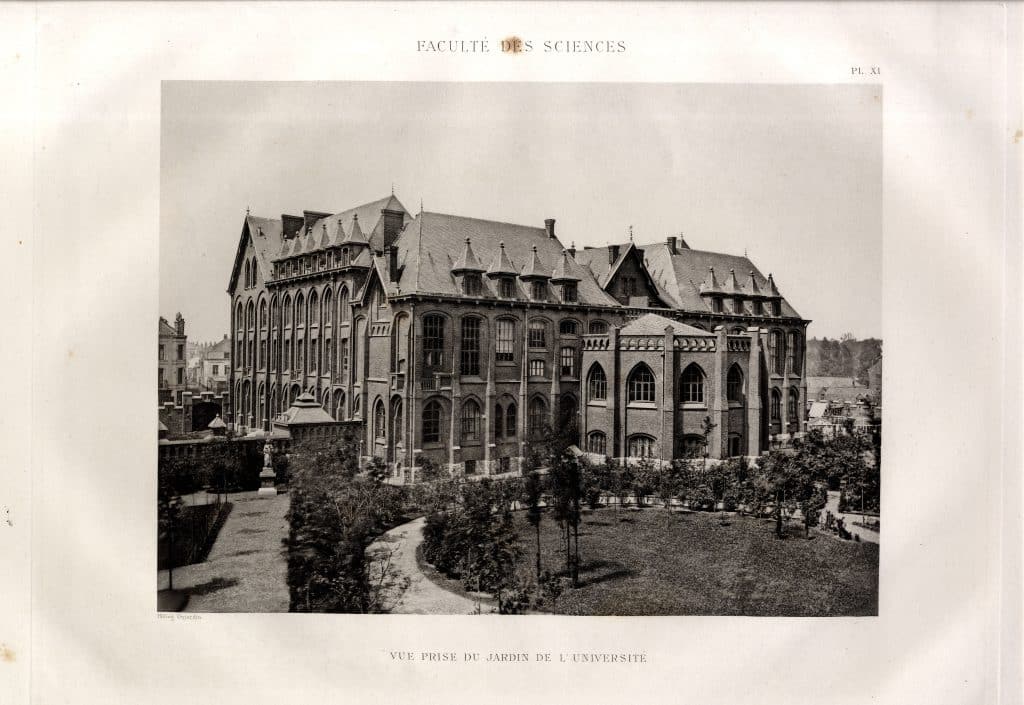
The Université Catholique de Lille officially opened in January 1877 with three Faculties: Law, Letters and Sciences. In a short time, it added a theological college and a faculty of medicine, thus broadening the range of disciplines on offer.
Three schools also opened starting from 1882, l’Ecole de sages-femmes (Midwifery School), the Hautes études d’ingénieurs (Engineering Higher Studies) and the Hautes études agricoles (Agricultural Higher Studies).
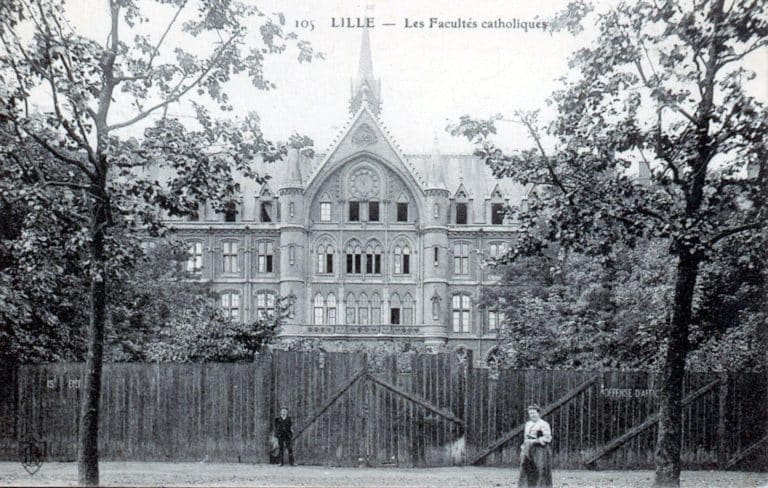
The main
building of the Vauban campus, known as the Hôtel Academique, started
construction on 22 November 1879 and was completed in autumn 1881. This 125 meters long imposing building was constructed in a Gothic style. It hosted from the beginning the Faculty of Letters, Law and Theology, thus symbolizing the
intellectual center of the University.
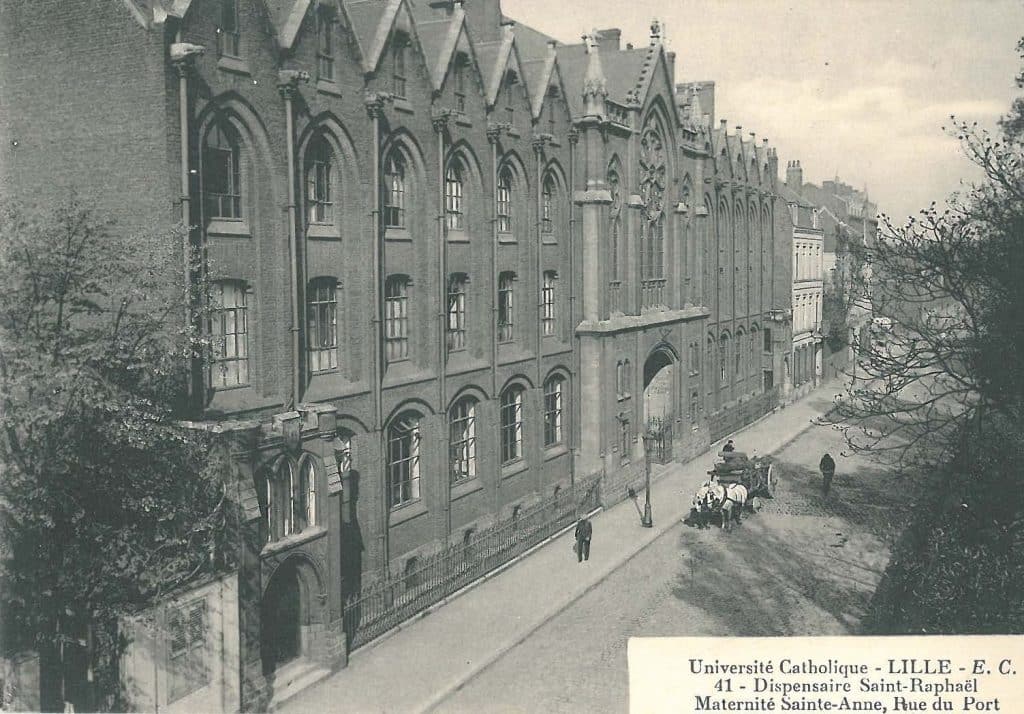
Creation of the Saint-Raphaël Clinic, rue du Port, of the Family House Saint-Michel, boulevard Vauban, of the Maison des étudiants, rue Meurein and of the building of the future Ecole d’électricité, rue Norbert Segard.
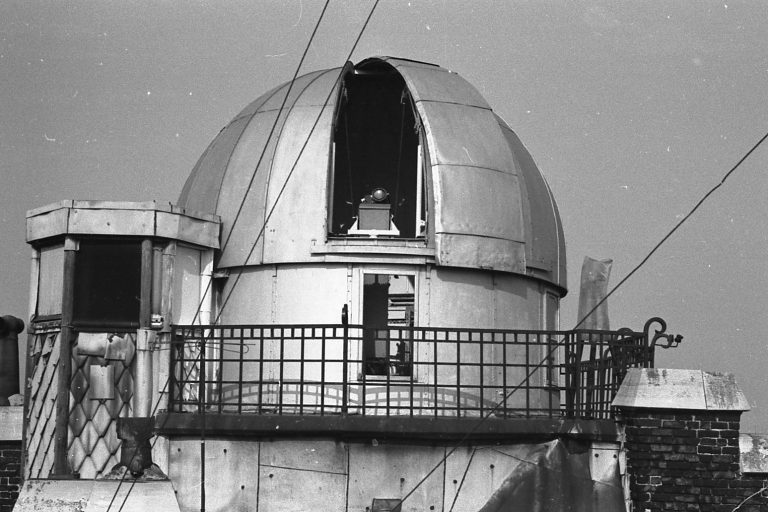
Built between 1888 and 1889 above the Palais académique of the Université Catholique de Lille, the building of the Astronomical Observatory was initiated at the instigation of Eugène-Marie Stoffaës, a former student of the Free Faculty of Sciences who had become a professor of Astronomy and Abbot.
The Chapelle Universitaire and the Aula Maxima
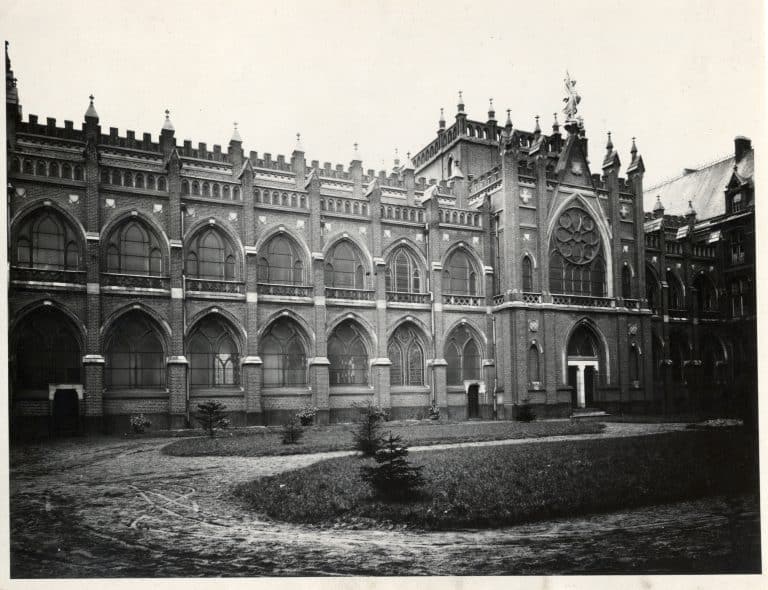
The third construction phase, initially delayed by the First World War, was finally completed to mark the 50th anniversary of the foundation in 1927. On this occasion, several buildings were erected, including a university chapel (1924), a wing of the Aula Maxima, with a main entrance on the boulevard Vauban, the Saint-Philibert polyclinic, located on rue Saint Jean-Baptiste de la Salle and the maternity hospital Sainte-Anne, located on the boulevard Vauban.
Diocese of Lille
Foundation of the Diocese of Lille
Creation of the IFCU
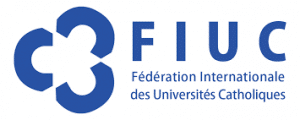
The IFCU (International Federation of Catholic Universities) was created at the behest of the Università Cattolica del Sacro Cuore (Milan, Italy) and the Katholieke Universiteit Nijmegen (Nijmegen, Netherlands).
Its mission was to federate Catholic universities from around the world and to foster exchanges and synergies between them.
Saint-Philibert Hospital
Construction of the Saint-Philibert Hospital in Lomme.
The FUPL
Creation of the FUPL – Fédération Universitaire et Polytechnique de Lille (University and Multidisciplinary Federation of Lille).
Saint-Vincent Hospital
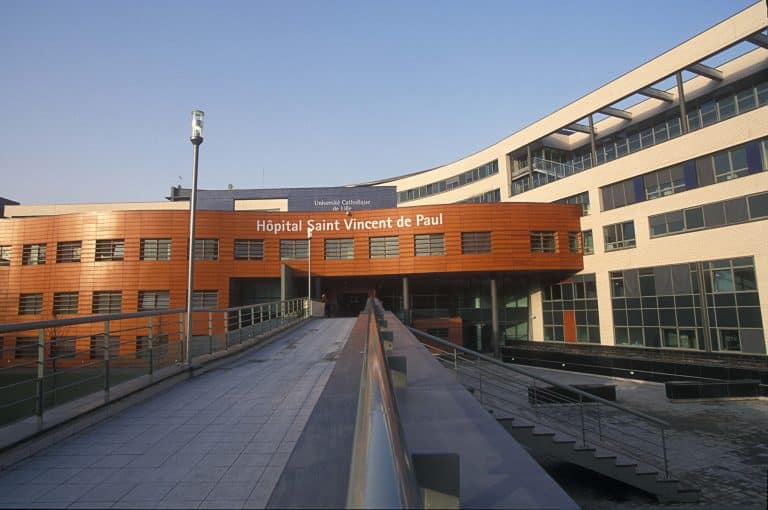
Opening of the Saint-Vincent de Paul Hospital in Lille.
Opening of the Social Innovation Neighborhood in Capinghem based on the principles of Coexistence.
Membership of the centre Feron-Vrau
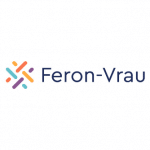
The Centre Feron-Vrau, which today comprises 5 Nursing Homes and one Maison des Aidants (Carers’ House), joined the University in 2008.
First edition of ECOPOSS, a festival which places humanity and ethics at the center of concerns in order to “praise the future”.
Centennial anniversary of the Chapelle Universitaire
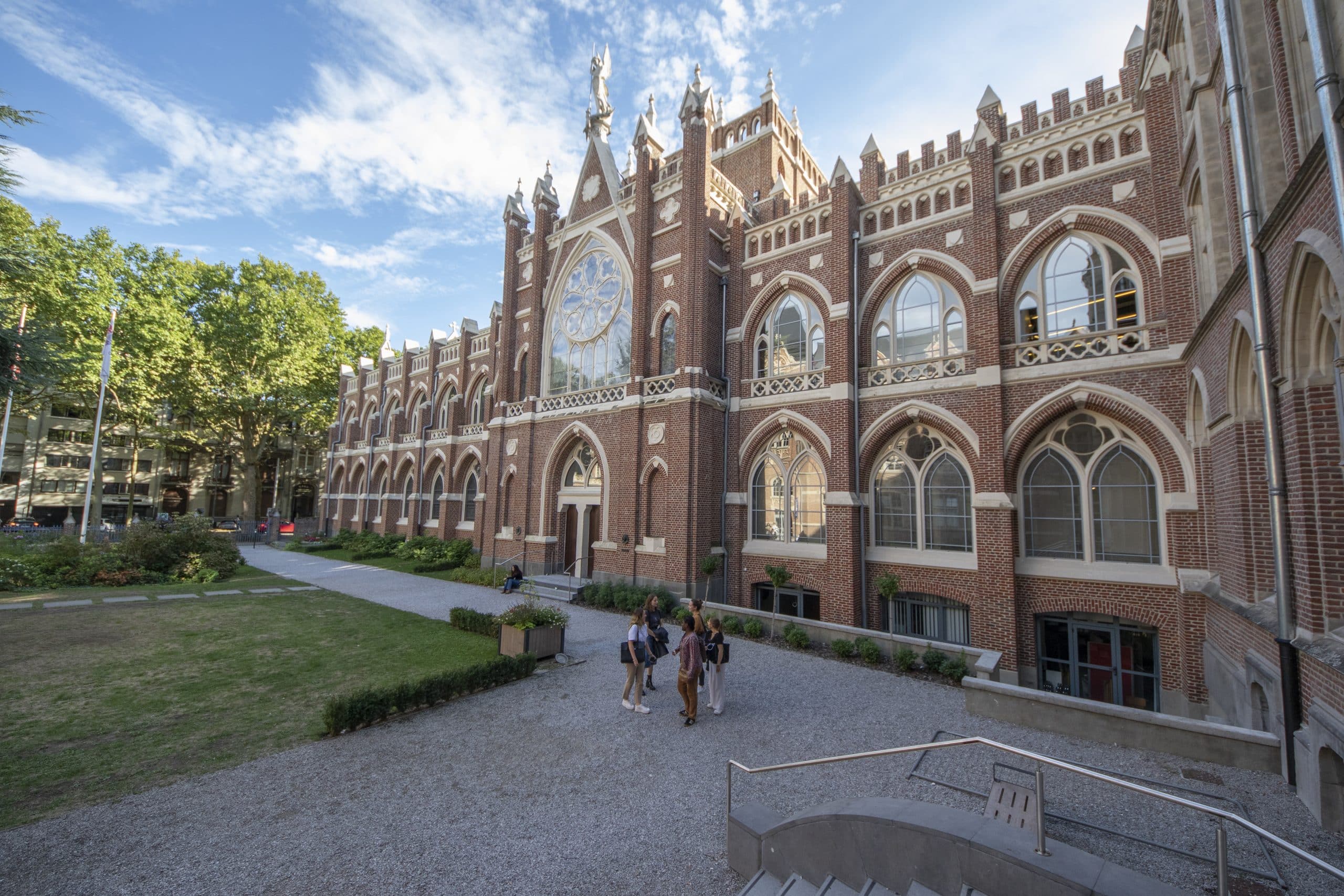
In 2024, the Chapelle Universitaire celebrated its first hundred years. For the occasion, it received a digitized copy of Saint-Mihiel, containing pericopes of the Gospels, made at the Reichenau Abbey in Germany shortly after 1053 and found in Saint-Mihiel in the 19th century. The digital book is accessible for free in the chapel.
Photo Credit Service du Patrimoine et des Archives


